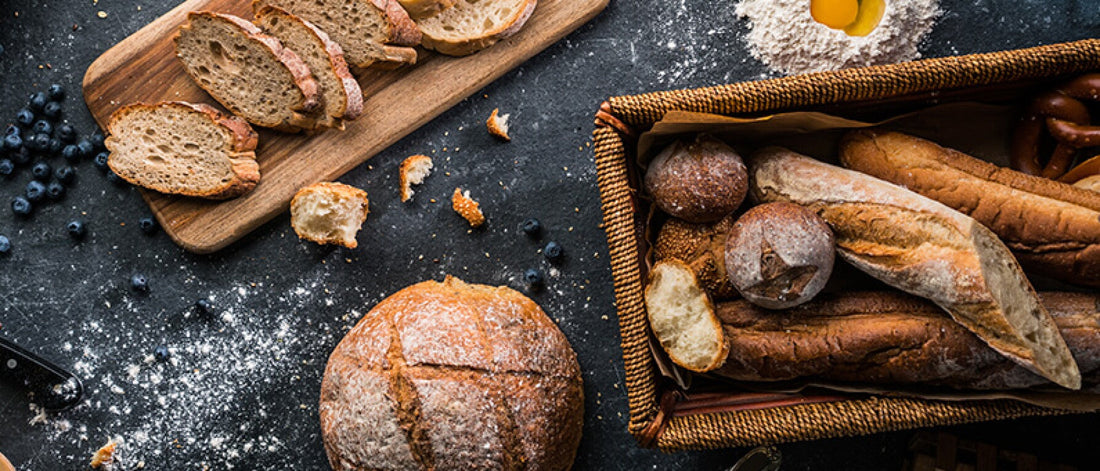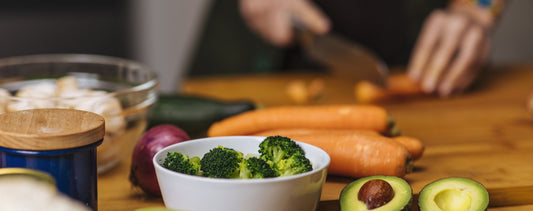Gluten-free diets are common. Research shows that approximately 1 percent of the population worldwide has celiac disease (gluten intolerance), and nearly 10 percent of people in the U.S. are gluten sensitive. Gluten is the protein found in many grains in the form of gliadin or glutinens.
Grains containing gluten include:
*Editor’s Note: The information in this article is intended for your educational use only; does not necessarily reflect the opinions of the Chopra Center's Mind-Body Medical Group; and is not a substitute for professional medical advice, diagnosis, or treatment. Always seek the advice of your physician or other qualified health providers with any questions you may have regarding a medical condition and before undertaking any diet, supplement, fitness, or other health program.
Experience profound rest by attuning to the natural rhythms of your body at the Chopra Center’s Perfect Health, a six-day Ayurvedic cleanse retreat. Learn More.
Grains containing gluten include:
- Wheat
- Spelt
- Barley
- Rye
- Farro
- Kamut
- Triticale
When to Go Gluten Free
There are two diagnoses when a healthcare professional is likely to recommend you follow a gluten-free diet.-
Celiac disease: If you have the autoimmune condition celiac disease, your body cannot tolerate gluten. If you have celiac disease, even a small amount of gluten triggers an immune response that wreaks havoc on your gastrointestinal system. Celiac disease can be detected through a blood test that looks for the antibody called transglutaminase immunoglobulin. For this diagnosis, a gluten-free diet will be a necessity.
- Gluten sensitivity: While gluten sensitivity is not as well understood as celiac disease, if you experience gluten sensitivity (non-celiac related) you may notice various uncomfortable symptoms related to digestion, including stomach pain, bloating, and irritable bowel syndrome (IBS) as well as low energy or fatigue, acne, or weight gain.
Why You May Want to Eat Less Gluten
While you may not be gluten intolerant or gluten sensitive (or are undiagnosed as such), eating less gluten can be beneficial for a few other reasons.Gluten Is Linked to Chronic Inflammation
Studies show there is a strong link between gluten and chronic inflammation––a symptom of most autoimmune diseases, chronic pain, and arthritis. You may experience this as a flare-up of autoimmune symptoms, increased joint pain, or increased overall body pain and inflammation.Gluten Alters the Microbiome
The microbiome is the collection of microbes in your digestive tract. Eating gluten can alter the microbiome in a negative way––throwing off the delicate balance of good and bad bacteria––for some people. You may experience this imbalance as IBS, leaky gut, digestive pain, constipation, and/or diarrhea.Gluten Leads to Acne
Studies show that eating a diet high in processed foods––especially white bread––can exacerbate acne breakouts on the face, back, and chest. This is due to the way in which gluten (and other processed, high-glycemic grains) alters the insulin response in the body, leading to an imbalance in hormones that can cause acne. You may experience this as acne worsening or recurring after a period of clear skin.Digesting Gluten Can Worsen With Stress
You may be someone who lives a stressful life––at work or at home. While you are not always able to control the source of your stress, or even manage it well, stress can affect many systems in your body––including your digestion. Studies show that eating under stress, eating on the go, and eating too fast can exacerbate digestive issues. If you notice yourself having trouble digesting certain foods, including glutinous grains and associated products, check to see if you can relax, slow down, and center yourself during mealtime. Relaxation and mindful eating can assist your body in digesting the gluten that you eat.How to Go Gluten Free
Eating gluten-free does not guarantee good health. While some gluten-free products are packed with pure ingredients, other gluten-free alternatives are highly processed and contain large amounts of sugar, genetically modified organisms (GMOs), and other chemicals and preservatives. Fortunately, there are many healthy options for you if you want to or need to go gluten-free. The following strategies will help you make informed decisions about gluten-free foods.-
Shop the perimeter of the store: Going gluten-free is best when the gluten-free foods you are eating are based on a whole foods diet. Shopping the perimeter of the store will help ensure that the majority of your grocery cart is filled with fresh vegetables, fruits, high-quality plant-based proteins or lean meats and fish, and bulk foods such as nuts, seeds, and healthy oils.
-
Read the ingredients list: When buying gluten-free products that have an ingredients list, be sure the ingredients align with your health goals. Avoid ingredients such as sugar, corn syrup, artificial sweeteners, preservatives (such as BHT, BHA, and TBHQ), and MSG.
-
Avoid highly refined/processed gluten-free products: Products that are gluten-free are not necessarily good for you. There are plenty of cakes, cookies, chips, and fried foods that are gluten free but are still junk food.
-
Make your food from scratch: When you cook your own gluten-free recipes, you will be able to see exactly what goes into each dish. Use natural and healthy ingredients whenever possible.
- Listen to your body: The best way to navigate what you eat is by listening to your body. How do you feel after eating gluten and other ingredients? Bio-individuality is the concept that you have your own food and lifestyle needs. With that in mind, there is no one-size-fits-all approach to eating––you are a unique individual with individualized requirements for optimal health.
When Going Gluten-Free Is a Choice
For many, eating a little gluten here and there does no harm. If you notice no side effects and generally feel fine after eating gluten, you may want to try some of the healthier versions of gluten. Here are some good options for you if you do not have celiac disease or are not sensitive to gluten.-
Ancient grains: Ancient grains are often considered the heirloom varieties of the grain family, many of which contain gluten. Wheat, the primary grain you may think of when you think of gluten, comes from a hybrid of two ancient grains––spelt and kamut. Research shows that the ancient (glutenous) grains such as spelt, kamut, farro, Einkorn wheat, and black barley may be healthier options. Try these ancient grains as flour in your baking, as an oatmeal-type warm breakfast, or cooked whole as a carbohydrate side dish to your meal, similar to rice.
- Sourdough bread: Not all breads are created equal. A good old-fashioned sourdough variety may surprise you with a fermentation process that both creates the “sour” flavor of sourdough bread and adds a few significant benefits to eating gluten. Sourdough bread has been shown to contain both probiotic and prebiotic qualities, nourishing the digestion, easing the bread’s digestibility, and making the other nutrients it contains more absorbable.
*Editor’s Note: The information in this article is intended for your educational use only; does not necessarily reflect the opinions of the Chopra Center's Mind-Body Medical Group; and is not a substitute for professional medical advice, diagnosis, or treatment. Always seek the advice of your physician or other qualified health providers with any questions you may have regarding a medical condition and before undertaking any diet, supplement, fitness, or other health program.
Experience profound rest by attuning to the natural rhythms of your body at the Chopra Center’s Perfect Health, a six-day Ayurvedic cleanse retreat. Learn More.






















